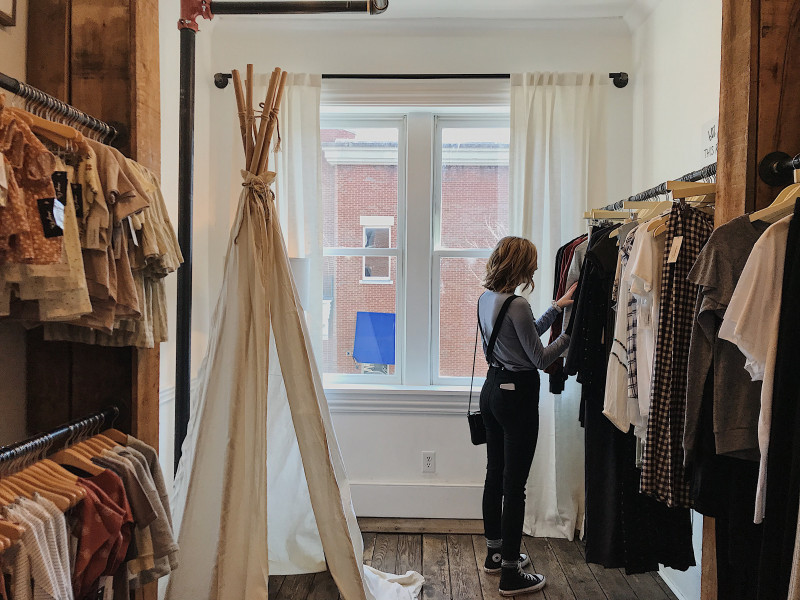
Inspired by a feature in The Guardian we thought we’d create this handy guide for shopping better when it comes to eco-friendly or sustainable products. We all want to shop better; buy organic, ethically sourced products and buy local where we can. However, we understand that navigating this world of sustainable, fair trade and green labels can be confusing. We try to simplify the terms so you can shop for clothes safe in the knowledge that you’re doing your best.
Organic – you can buy organic cotton, organic denim but what does it mean? It means the fibres are produced without the use of toxic chemicals which directly affect the environment. A huge amount of water is also used in the cotton and denim industry so it’s good to find out which companies are looking to combat this issue. Boyish Jeans is a good example of this. “Boyish Jeans' efforts in sustainable fashion include working with ethical factories, using less harmful chemicals during the dyeing process, utilizing one-third of the amount of water typically needed to produce a pair of jeans, and working exclusively with recycled fabrics and materials for everything put out by the brand.”
Fairtrade – Fairtrade changes the way trade works through better prices, decent working conditions and a fairer deal for farmers and workers in developing countries. This ensures the products you buy labelled Fairtrade have been ethically produced.
Sustainable – before you buy, ask yourself how will this product affect the planet? Is this product made from natural fibres like wool which breaks down or synthetics fibres like polyester (which is plastic). Or perhaps it’s made using recycled materials. Irish clothing company Wolfhound and Elk repurpose discarded plastic bottles and manufacture them into premium quality fabric. And All Things Fiona Lily takes end of line stock to create her range which would otherwise end up in landfill.
Slow fashion – this is the antithesis of fast fashion. Slow fashion is all about investment pieces. High-quality garments that last a lifetime. An example of this would be Lucy Nagle’s cashmere collection, wardrobe staples that last a lifetime once cared for correctly.
Greenwashing – when brands and products claim to be ‘green’ but perhaps are exaggerating or putting a positive spin on it. An example of this would be fast fashion brands having conscious or eco-collections which may account for only a small percentage of their business.
And if all this sounds far to complex buying second hand and from charity shops is a great idea. It helps lower the overall demand for new clothing and lowers the amount of clothing ending up in landfill. Happy shopping.